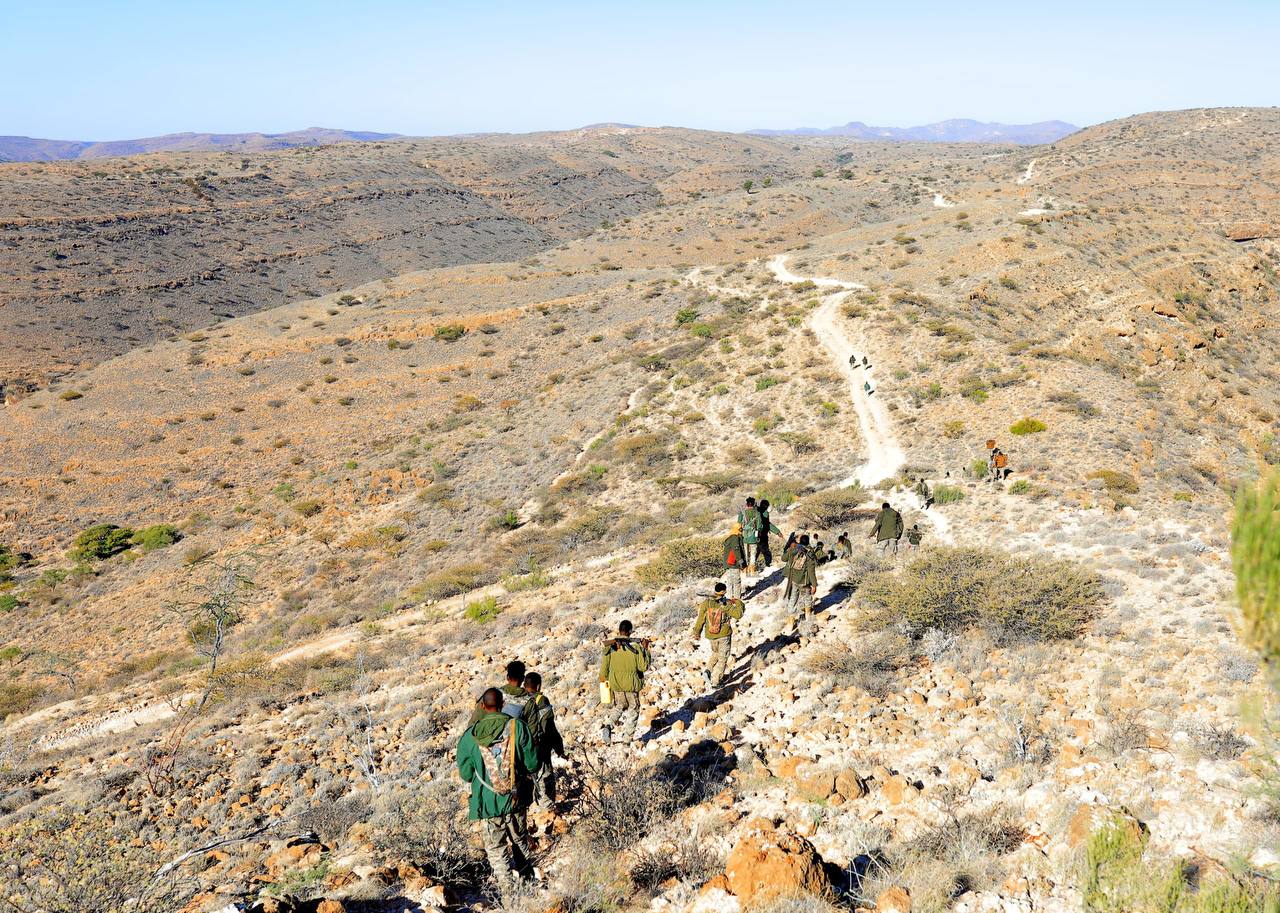The Puntland State of Somalia is engaged in a critical and multifaceted war against two of the most dangerous extremist groups in the region: ISIS-Somalia and Al-Shabab. This conflict is not only a military struggle but also a battle of ideologies and narratives. While Puntland’s security forces have shown resilience and determination in the Calmiskaad mountains and other fronts, the leadership’s inability to develop a consistent and organized narrative, coupled with strategic shortcomings, has significantly diluted its overall war effort. This failure undermines the sacrifices of its soldiers, the contributions of its diaspora, and the trust of its citizens.
1. Lack of a Coherent Narrative
One of the most glaring weaknesses of Puntland’s leadership is the absence of a clear, consistent, and compelling narrative to counter the propaganda of ISIS-Somalia and Al-Shabab. Extremist groups thrive on exploiting ideological vacuums and spreading fear through their messaging. Puntland’s administration has failed to articulate a unified counter-narrative that exposes the extremists’ falsehoods, highlights the government’s successes, and reassures the public of its commitment to victory. This lack of communication has allowed extremist groups to dominate the information space, radicalize vulnerable populations, and erode public confidence in the government’s ability to protect its people.
2. Inconsistent Public Information Campaigns
The Puntland government has not implemented a reliable public information strategy to keep citizens informed about its military operations, achievements, and challenges. Transparency is crucial in building trust and rallying public support, yet the administration has been opaque about its efforts. This silence has created room for misinformation, rumors, and even sabotage by external actors, such as reports of the Federal Government of Somalia undermining Puntland’s campaigns. Without a robust public information apparatus, Puntland’s leadership risks losing the moral high ground and alienating its own population.
3. Failure to Fully Leverage Diaspora Contributions
The Puntland diaspora has been a vital asset in the war effort, mobilizing resources, raising awareness, and advocating for international support. However, the leadership has not fully harnessed this potential. There is no organized framework to coordinate diaspora contributions effectively, nor has the government consistently engaged with its diaspora to align their efforts with its strategic goals. This lack of coordination represents a missed opportunity to amplify Puntland’s voice on the global stage and strengthen its capacity to combat extremism.
4. Strategic Shortcomings in Military Operations
While Puntland’s security forces have demonstrated bravery, the leadership’s strategic approach to the war has been reactive rather than proactive. The absence of a long-term, comprehensive strategy to degrade and dismantle extremist networks has allowed ISIS-Somalia and Al-Shabab to regroup and adapt. The focus on military operations alone, without integrating ideological, economic, and social countermeasures, has limited the effectiveness of the campaign. The government must adopt a holistic approach that addresses the root causes of extremism, such as poverty, unemployment, and lack of education, to achieve lasting peace.
5. Alleged Federal Government Sabotage and Lack of Response
Reports of the Federal Government of Somalia undermining Puntland’s efforts against ISIS-Somalia and Al-Shabab, if proven, represent a grave national betrayal. However, Puntland’s leadership has not adequately addressed these allegations or taken decisive action to counteract such sabotage. This perceived inaction weakens Puntland’s position and raises questions about its ability to safeguard its sovereignty and security. The administration must confront this issue head-on, either through diplomatic channels or by rallying international support to hold the Federal Government accountable.
6. Weak Coordination with Local Communities
Local communities are critical allies in the fight against extremism, yet Puntland’s leadership has not effectively engaged with them. Building trust and collaboration with community leaders, elders, and religious figures is essential to counter radicalization and gather intelligence. The government’s failure to foster strong relationships with these stakeholders has hindered its ability to isolate extremists and win the hearts and minds of the population.
Conclusion
The war against ISIS-Somalia and Al-Shabab is a defining challenge for Puntland, requiring not only military strength but also strategic vision, effective communication, and strong leadership. Unfortunately, the Puntland administration’s weaknesses in these areas have compromised its ability to achieve decisive victory. To turn the tide, the leadership must develop a coherent narrative, implement a robust public information strategy, fully leverage diaspora contributions, adopt a comprehensive counter-extremism approach, address external sabotage, and strengthen ties with local communities. Only then can Puntland hope to defeat the extremists and secure a peaceful future for its people. The time for action is now; failure is not an option.
END
Ismail Haji Warsame | Warsame Digital Media (WDM) | X: @ismailwarsame


COMMENTS